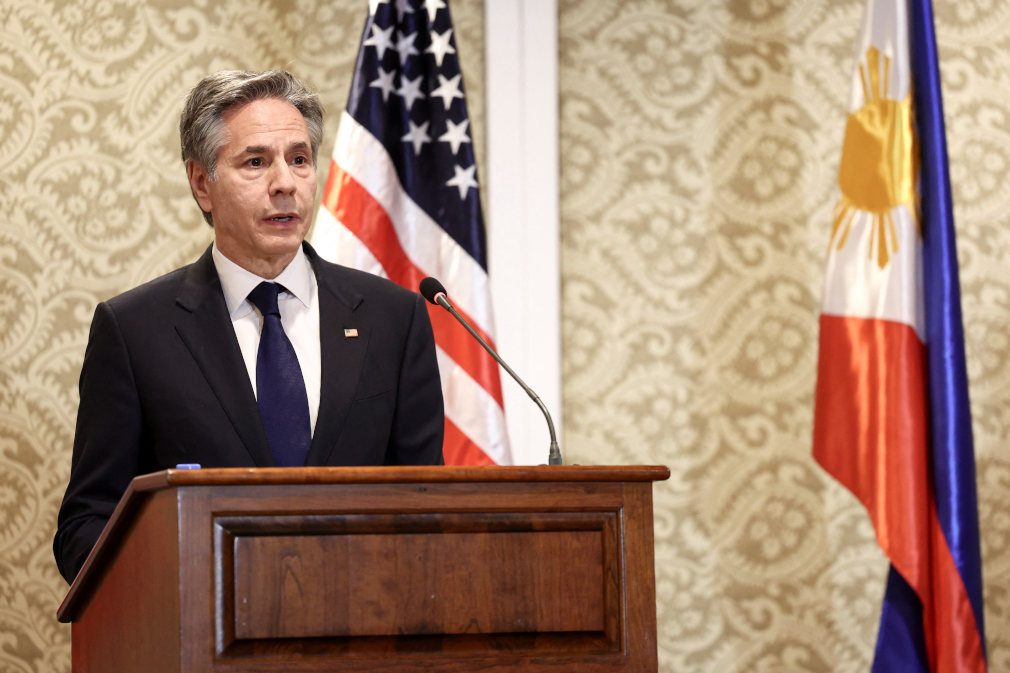May 15, 2025: Assessing Trump's Middle East Trip And Its Presidential Impact

Table of Contents
Geopolitical Implications of Trump's Hypothetical Middle East Trip
A hypothetical Trump Middle East trip in 2025 would undoubtedly have significant geopolitical consequences. His previous administration's approach to the region was marked by a departure from traditional diplomatic norms, leading to both opportunities and challenges.
Impact on the Iran Nuclear Deal
Would a second Trump administration re-enter the Iran Nuclear Deal (JCPOA) or further dismantle it? This decision would have profound consequences:
- Increased Tensions: Abandoning the JCPOA could reignite tensions with Iran, potentially leading to renewed military threats or proxy conflicts.
- Renewed Sanctions: A return to a more aggressive sanctions regime could cripple the Iranian economy, further destabilizing the region.
- Regional Instability: Increased tensions with Iran could destabilize already fragile alliances and create further opportunities for extremist groups.
- Allied Reactions: European allies, who largely support the JCPOA, would likely express strong disapproval, potentially straining the transatlantic relationship.
- Adversary Reactions: Israel and Saudi Arabia might initially welcome a harder line on Iran, but could also be wary of escalating regional conflict. The keywords: Iran Nuclear Deal, sanctions, regional stability, Middle East conflict, are highly relevant here.
Relationship with Israel and Palestine
Trump's approach to the Israeli-Palestinian conflict is another key area of uncertainty. His previous administration's recognition of Jerusalem as Israel's capital and support for Israeli settlements alienated many Palestinians and raised concerns internationally. A hypothetical 2025 trip could lead to:
- Abandonment of the Two-State Solution: Trump may further weaken prospects for a two-state solution, potentially favoring unilateral Israeli actions.
- Increased Settlement Activity: His administration might actively support further expansion of Israeli settlements in the West Bank, further exacerbating tensions.
- Shifting International Support: A biased approach could shift international support away from the peace process, further entrenching the conflict.
- Palestinian Reaction: The Palestinian Authority might react with further condemnation and escalate protests or boycott efforts.
- Israeli Reaction: The Israeli government might welcome increased support, but also face criticism for its settlement policy. Keywords: Israeli-Palestinian conflict, two-state solution, Jerusalem, settlements, peace process, are central to this discussion.
Saudi Arabia and Other Gulf States
Relations with Saudi Arabia and other Gulf States would be a crucial element of any Trump Middle East trip. Potential areas of cooperation and contention include:
- Counter-Terrorism: Cooperation on counter-terrorism efforts could continue, particularly in addressing threats from ISIS and other extremist groups.
- Energy Policy: Discussions about global oil prices and energy security would likely feature prominently. A Trump administration might push for increased oil production to lower prices.
- Regional Alliances: Trump may seek to consolidate relationships with Gulf States to counter Iranian influence, while potentially neglecting other regional dynamics.
- Human Rights: Differing views on human rights issues in Saudi Arabia could create friction, potentially impacting bilateral relationships.
- Arms Sales: The sale of advanced weaponry to Saudi Arabia and other Gulf states could also be a point of contention, attracting criticism from human rights organizations. Keywords: Saudi Arabia, Gulf States, oil prices, counter-terrorism, regional alliances, are critical in this section.
Domestic Political Ramifications of the Trip
A hypothetical Trump Middle East trip would not be without significant domestic political ramifications.
Public Opinion and Political Fallout
Public reaction to Trump's Middle East policies could be highly polarized. His actions might:
- Boost Support: Among his base, assertive action in the Middle East could increase his approval ratings and strengthen his political standing.
- Damage Approval: Conversely, controversial decisions could alienate moderate voters and damage his approval ratings.
- Divide Public Opinion: His policies might further divide public opinion, creating intense political debate and protests.
- Impact on Midterm Elections: His policies could significantly impact the outcomes of future midterm elections.
- Foreign Policy Criticism: Strong criticism of his foreign policy approach might further deepen partisan divides. Keywords: public opinion, approval ratings, political consequences, domestic policy, election impact, are key to this analysis.
Impact on the 2028 Presidential Election
The hypothetical trip's effects could ripple into the 2028 presidential election:
- Voter Turnout: His actions could mobilize voters on both sides of the political spectrum, increasing voter turnout.
- Shifting Party Alignments: His policies might shift the allegiance of voters, creating opportunities for opposing candidates.
- Campaign Strategy: Opposing candidates would likely tailor their campaign strategies to counter Trump's actions in the Middle East.
- Influence on Debates: The trip and its results would inevitably be a key discussion point in presidential debates.
- Foreign Policy as a Campaign Issue: Foreign policy, and especially Trump’s Middle East policies, would become a central campaign issue. Keywords: 2028 election, presidential candidates, voter turnout, campaign strategy, are important here.
Analyzing Trump's Past Middle East Policies and Predicting Future Actions
Understanding Trump's past actions is crucial to predicting his future approach to the Middle East.
Review of Trump's Previous Middle East Engagements
Trump's previous term was marked by a series of controversial decisions, including:
- Withdrawal from the Iran Nuclear Deal: This action significantly altered US relations with Iran and its allies.
- Recognition of Jerusalem as Israel's Capital: This decision upset Palestinians and sparked international criticism.
- Brokering the Abraham Accords: This achievement normalized relations between Israel and several Arab nations.
- Increased military actions in the region: These increased tensions and the involvement of US military in the region.
- Shifting alliances in the region: These shifts influenced stability and relations between regional players. Keywords: Trump foreign policy, past Middle East actions, presidential decisions, are key to understanding his likely future actions.
Considering the Shifting Global Landscape
Several factors could influence Trump's approach in 2025:
- The ongoing war in Ukraine: This conflict has dramatically reshaped global alliances and priorities.
- China's growing influence: China's growing economic and military power will influence strategic considerations.
- Energy markets: Global energy markets will impact energy security concerns and potential US actions.
- New regional alliances and conflicts: Any new alliances or conflicts will alter the political landscape.
- The state of the US economy: The US economy's status will influence the feasibility of various foreign policy options. Keywords: global politics, geopolitical shifts, international relations, are highly relevant here.
Conclusion
This hypothetical analysis of a Trump Middle East trip in May 2025 highlights the significant potential impact such a visit could have on both domestic and international affairs. By examining the geopolitical implications, domestic political ramifications, and Trump's past behaviors, we can better understand the potential complexities and consequences of such an undertaking. Further research and analysis are needed to fully grasp the possible outcomes, but it's clear that Trump's Middle East trip, were it to occur, would be a highly significant event with lasting global effects. Therefore, continued monitoring and discussion of Trump's Middle East trip and its potential repercussions are crucial for informed political engagement.

Featured Posts
-
 Apple Tv Discount 3 Months For 3 Last Chance
May 17, 2025
Apple Tv Discount 3 Months For 3 Last Chance
May 17, 2025 -
 Tony Bennett His Career Collaborations And Impact
May 17, 2025
Tony Bennett His Career Collaborations And Impact
May 17, 2025 -
 February 23rd Knicks Celtics Game Latest On Josh Harts Injury
May 17, 2025
February 23rd Knicks Celtics Game Latest On Josh Harts Injury
May 17, 2025 -
 Navigating Your Midday Interview For The Fountain City Classic Scholarship
May 17, 2025
Navigating Your Midday Interview For The Fountain City Classic Scholarship
May 17, 2025 -
 Local Students Awarded Stem Scholarships Funding Opportunities And Applications
May 17, 2025
Local Students Awarded Stem Scholarships Funding Opportunities And Applications
May 17, 2025
Latest Posts
-
 Network18 Media And Investments Stock Current Price Technical Analysis And Expert Predictions April 21 2025
May 17, 2025
Network18 Media And Investments Stock Current Price Technical Analysis And Expert Predictions April 21 2025
May 17, 2025 -
 Improving Florida School Lockdown Response Addressing Generational Gaps
May 17, 2025
Improving Florida School Lockdown Response Addressing Generational Gaps
May 17, 2025 -
 Network18 Media And Investments Share Price Today April 21 2025 Live Nse Bse Rates Analysis And Forecasts
May 17, 2025
Network18 Media And Investments Share Price Today April 21 2025 Live Nse Bse Rates Analysis And Forecasts
May 17, 2025 -
 Actualizacion Situacion De Las Cuentas Congeladas De Koriun Para Inversionistas
May 17, 2025
Actualizacion Situacion De Las Cuentas Congeladas De Koriun Para Inversionistas
May 17, 2025 -
 Analyzing Florida School Lockdown Response A Generation By Generation Study
May 17, 2025
Analyzing Florida School Lockdown Response A Generation By Generation Study
May 17, 2025
